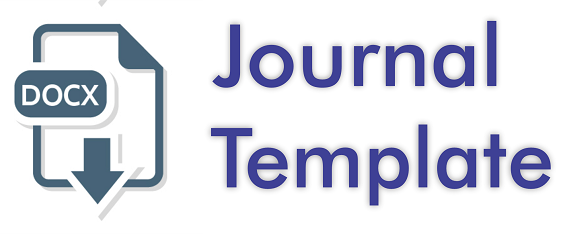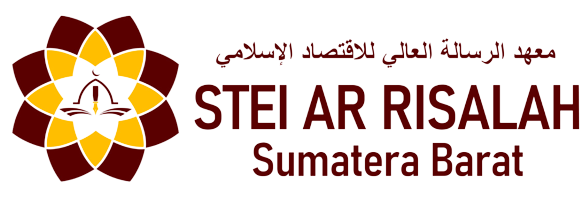The Influence Of Income Level, Education, And Public Perception On Interest In Cash Waqf
Keywords:
Income Level, Education, Perception, Cash WaqfAbstract
This study aims to determine the influence of income, education and perception on interest in cash waqf in Aceh Besar district. The data used were primary data using a questionnaire instrument distributed to 100 community respondents with ID cards in Aceh Besar. The number of variables studied there are 4 variables, namely income level, education and perception as independent variables and variables of interest in cash waqf as dependent variables. The approach used in this study is a quantitative approach. The sampling method used is nonprobability sampling with purposive sampling techniques. Analysis methods used with multiple linear regression analysis. The results showed that income and perception had a positive and significant effect on the interest of the people with cash waqf, while education did not have a positive and significant effect on the interest of people with cash waqf. The findings of this study indicate that to increase public interest in cash waqf, it is necessary to increase understanding of cash waqf through socialization and other activities.
Downloads
References
Amalia, A. N., & Puspita, P. (2018). Minat Masyarakat JakartadDalam Berwakaf Uang pada Lembaga Wakaf. Syiar Iqtishadi: Journal of Islamic Economics, Finance and Banking, 2(2), 1–19.
Banowati, E. N., Mudrikatunnisa, M., Maula, A. R., & Fajrie, N. (2023). Faktor-faktor yang Mempengaruhi Minat Baca Siswa Kelas II di SDN 2 Kedungsarimulyo. ALFIHRIS: Jurnal Inspirasi Pendidikan, 1(4), 116–127.
Fauziah, N. N., Ali, E. R. A. E., & Bacha, A. M. (2021). An Analysis of Cash Waqf Linked Sukuk for Socially Impactful Sustainable Projects in Indonesia. Journal of Islamic Finance, 10, 1–10.
Fauziah, S., & El Ayyubi, S. (2019). Faktor-faktor yang Memengaruhi Persepsi Wakif terhadap Wakaf Uang di Kota Bogor. Al-Muzara’ah, 7(1), 19–31.
Friedman, M., & Bordo, M. (2017). The Optimum Quantity of Money. Routledge.
Handayani, R. P., & Kurnia, T. (2015). Analisis Persepsi Masyarakat Kota Bogor terhadap Wakaf Tunai. Jurnal Syarikah: Jurnal Ekonomi Islam, 1(2).
Hibrizie, R. A., Sandriya, P. A., Adrian, R. F., Backtiar, M., & Suharyat, Y. (2023). Pandangan Islam Tentang Kesejahteraan Hidup Ekonomis. Student Scientific Creativity Journal, 1(3), 349–369.
Hiyanti, H., Afiyana, I. F., & Fazriah, S. (2020). Potensi dan Realisasi Wakaf Uang di Indonesia Tahun 2014-2018. Jurnal Ilmiah Manajemen, Ekonomi, & Akuntansi (MEA), 4(1), 77–84.
Hudzaifah, A. (2019). Factors influencing Willingness to Contribute in Cash Waqf: Case of South Tangerang, Indonesia. KITABAH: Jurnal Akuntansi Dan Keuangan Syariah, 1.
Ismawati, Y., & Anwar, M. K. (2019). Pengaruh Persepsi Masyarakat Tentang Wakaf Uang terhadap Minat Berwakaf Uang di Kota Surabaya. Jurnal Ekonomika Dan Bisnis Islam, 2(3), 129–138.
Kunaifi, A., & Syah, A. F. (2023). Natural Resource Management in the Perspective of Fiqh Rules: An Islamic State Budget Proposal For Indonesia. Islamic Research, 6(1), 83–92.
Nizar, A. (2014). Faktor-faktor yang mempengaruhi persepsi wakif tentang wakaf uang. Esensi: Jurnal Bisnis Dan Manajemen, 4(1).
Qurrata, V. A., Yusida, E., Hussain, N. E., Merlinda, S., Purnamasari, V., & Seprillina, L. (2021). Effectiveness of Cash Waqf Management in Improving Community Welfare: Challenges and opportunities. Review of Integrative Business and Economics Research, 10, 342–359.
Rada, T. A., Umuri, K., & Sari, N. (2022). Analysis of Problems and Solutions for Implementation of Waqf Land Certification. Proceedings: Dirundeng International Conference on Islamic Studies, 33–46.
Rahmania, N., & Maulana, H. (2023). Waqf Literacy Level and its Determinants on Public Intention to Contribute Cash Waqf: A Study of Waqf Institutions in Indonesian. IQTISHODUNA: Jurnal Ekonomi Islam, 12(1), 283–300.
Sarwono, S. W. (2018). Pengantar Psikologi Umum (9th ed., Vol. 9). Rajawali Pers,.
Sasongko, F. N., Astuti, T. W., & Muttaqin, M. S. (2021). Cash Waqf Linked Sukuk: Potential and Challenges. Indonesian Interdisciplinary Journal of Sharia Economics (IIJSE), 4(1), 190–200.
Shadiqqy, M. A. (2019). Pengaruh Pendapatan, Religiusitas, Jarak Lokasi, Tingkat Pendidikan dan Akses Informasi terhadap Minat Masyarakat Untuk Berwakaf Uang di Badan Wakaf Uang Tunai MUI DIY. Panangkaran: Jurnal Penelitian Agama Dan Masyarakat, 2(2), 249–262.
Sugiyono. (2016). Metode Penelitian Kuantitatif, Kualitatif, dan Kombinasi (Mixed Methods). Alfabeta.
Sulistiani, S. L. (2022). Wakaf Uang: Pengelolaan dalam Hukum Islam dan Hukum Positif di Indonesia. Sinar Grafika.
Syafiq, A. (2016). Wakaf Tunai untuk Pemberdayaan Usaha Kecil. ZISWAF: Jurnal Zakat dan Wakaf, 1(2), 1–25.
Downloads
Published
Issue
Section
License
Copyright (c) 2024 RISALAH IQTISADIYAH: Journal of Sharia Economics

This work is licensed under a Creative Commons Attribution 4.0 International License.
License
The non-commercial use of the article will be governed by the Creative Commons Attribution license as currently displayed on http://creativecommons.org/licenses/by/4.0/. This licence allows the user to distribute, remix, tweak, and build upon the licensed work, including for commercial purposes, as long as the original author is credited.
Author’s Warranties
The author warrants that the article is original, written by stated author/s, has not been published before, contains no unlawful statements, does not infringe the rights of others, is subject to copyright that is vested exclusively in the author and free of any third party rights, and that any necessary written permissions to quote from other sources have been obtained by the author/s.
User Rights
Under the Creative Commons Attribution license, the author(s) and users are free to share (copy, distribute and transmit the contribution).
Rights of Authors
Authors retain the following rights:
- copyright, and other proprietary rights relating to the article, such as patent rights,
- the right to use the substance of the article in future own works, including lectures and books,
- the right to reproduce the article for own purposes, provided the copies are not offered for sale,
- the right to self-archive the article.
Co-Authorship
If the article was prepared jointly with other authors, the signatory of this form warrants that he/she has been authorized by all co-authors to sign this agreement on their behalf, and agrees to inform his/her co-authors of the terms of this agreement.
Termination
This agreement can be terminated by the author or RISALAH IQTISADIYAH: JOURNAL OF SHARIA ECONOMICS upon two months’ notice where the other party has materially breached this agreement and failed to remedy such breach within a month of being given the terminating party’s notice requesting such breach to be remedied. No breach or violation of this agreement will cause this agreement or any license granted in it to terminate automatically or affect the definition of RISALAH IQTISADIYAH: JOURNAL OF SHARIA ECONOMICS.
Royalties
This agreement entitles the author to no royalties or other fees. To such extent as legally permissible, the author waives his or her right to collect royalties relative to the article in respect of any use of the article by RISALAH IQTISADIYAH: JOURNAL OF SHARIA ECONOMICS or its sublicensee.
Miscellaneous
RISALAH IQTISADIYAH: JOURNAL OF SHARIA ECONOMICS will publish the article (or have it published) in the Journal, if the article’s editorial process is successfully completed and RISALAH IQTISADIYAH: JOURNAL OF SHARIA ECONOMICS or its sublicensee has become obligated to have the article published. RISALAH IQTISADIYAH: JOURNAL OF SHARIA ECONOMICS may conform the article to a style of punctuation, spelling, capitalization and usage that it deems appropriate. The author acknowledges that the article may be published so that it will be publicly accessible and such access will be free of charge for the readers. RISALAH IQTISADIYAH: JOURNAL OF SHARIA ECONOMICS will be allowed to sublicense the rights that are licensed to it under this agreement.


.png)
.png)






